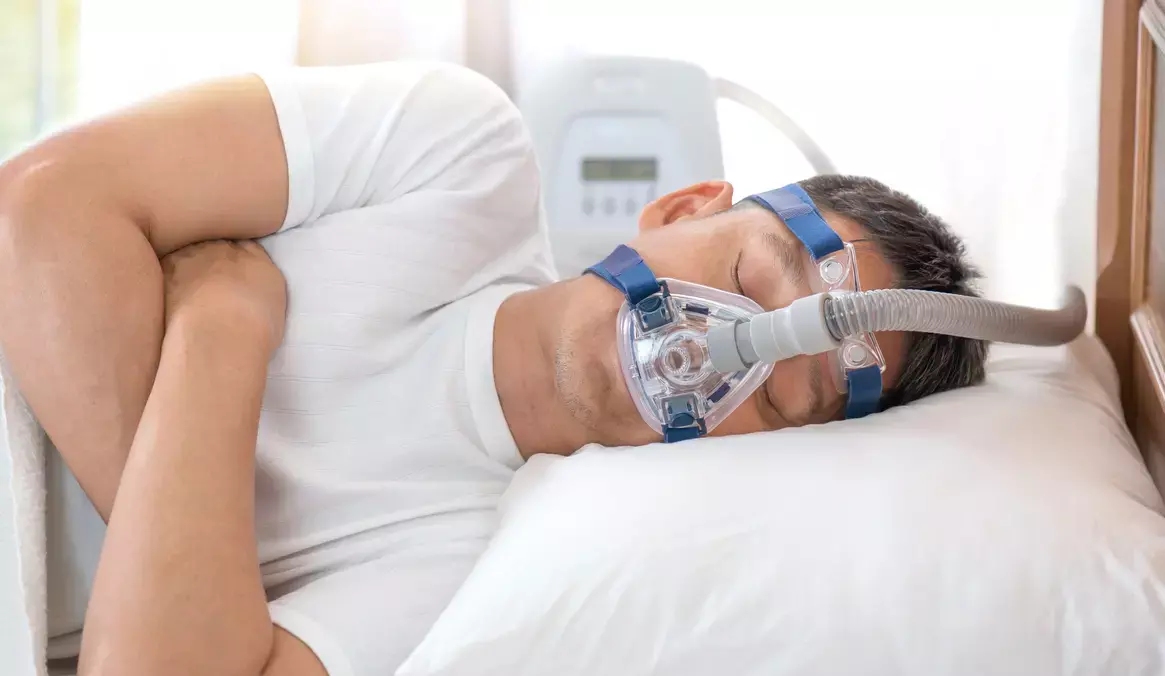- Home
- Medical news & Guidelines
- Anesthesiology
- Cardiology and CTVS
- Critical Care
- Dentistry
- Dermatology
- Diabetes and Endocrinology
- ENT
- Gastroenterology
- Medicine
- Nephrology
- Neurology
- Obstretics-Gynaecology
- Oncology
- Ophthalmology
- Orthopaedics
- Pediatrics-Neonatology
- Psychiatry
- Pulmonology
- Radiology
- Surgery
- Urology
- Laboratory Medicine
- Diet
- Nursing
- Paramedical
- Physiotherapy
- Health news
- Fact Check
- Bone Health Fact Check
- Brain Health Fact Check
- Cancer Related Fact Check
- Child Care Fact Check
- Dental and oral health fact check
- Diabetes and metabolic health fact check
- Diet and Nutrition Fact Check
- Eye and ENT Care Fact Check
- Fitness fact check
- Gut health fact check
- Heart health fact check
- Kidney health fact check
- Medical education fact check
- Men's health fact check
- Respiratory fact check
- Skin and hair care fact check
- Vaccine and Immunization fact check
- Women's health fact check
- AYUSH
- State News
- Andaman and Nicobar Islands
- Andhra Pradesh
- Arunachal Pradesh
- Assam
- Bihar
- Chandigarh
- Chattisgarh
- Dadra and Nagar Haveli
- Daman and Diu
- Delhi
- Goa
- Gujarat
- Haryana
- Himachal Pradesh
- Jammu & Kashmir
- Jharkhand
- Karnataka
- Kerala
- Ladakh
- Lakshadweep
- Madhya Pradesh
- Maharashtra
- Manipur
- Meghalaya
- Mizoram
- Nagaland
- Odisha
- Puducherry
- Punjab
- Rajasthan
- Sikkim
- Tamil Nadu
- Telangana
- Tripura
- Uttar Pradesh
- Uttrakhand
- West Bengal
- Medical Education
- Industry
CPAP use improves blood sugar and glucose variability in sleep apnea patients: Study

Studies in the past have reported sudden death in patients with Obstructive sleep apnea during nighttime sleep which might be associated with life-threatening arrhythmia and ischemic heart disease. The involvement of Glucose variability and hypoglycemia during sleep is presumed to be a contributing factor in these events.
Assessing Glucose variability (GV) during sleep in patients with obstructive sleep apnea (OSA) is useful for clinical risk management, reveals a new study. Also, CPAP treatment for 1 week may help improve Glucose variability (GV) and high blood sugar index.
The study has been published in Sleep and Breathing.
In various previous studies, Glycemic variability (GV) and hypoglycemia during sleep are presumed to be associated with fatal bradycardia.
A group of researchers from Japan conducted a study to evaluate blood sugar dynamics during sleep in patients with obstructive sleep apnea syndrome (OSA) and normal glucose tolerance.
The researchers included patients with obstructive sleep apnea (OSA) and no diabetes who underwent type 1 overnight polysomnography from December 2018 to May 2020. Glucose variability (GV) was evaluated in all participants for 14 days using a flash glucose monitoring device. Correlations were examined between Glucose variability (GV) indexes and indexes related to sleep breathing disorders, the effects of treatment with continuous positive airway pressure (CPAP) on these Glucose variability (GV) indexes, and the characteristics of glucose dynamics in different obstructive sleep apnea syndrome (OSA) subtypes are classified by sleep stage.
The results of the study are as follows:
- Among 42 patients with obstructive sleep apnea syndrome (OSA) and no diabetes, the standard deviation of Glucose variability (GV) during sleep correlated significantly with sleep time spent with oxygen saturation <90%
- High blood glucose index during sleep correlated significantly with stage N1% and negatively with stage N2%
- High blood glucose index correlated significantly with sleep time spent with oxygen saturation <90%
- The rapid eye movement-related obstructive sleep apnea syndrome (OSA) group had a higher incidence of hypoglycemia.
- One-week with CPAP treatment significantly improved Glucose variability (GV) during sleep, the standard deviation of Glucose variability (GV), and high blood glucose index.
As their findings suggested greater Glucose variability (GV) during sleep in patients with obstructive sleep apnea syndrome (OSA) and normal glucose tolerance, compared with healthy individuals. The researchers concluded that it is essential to evaluate Glucose variability (GV) during sleep in patients with obstructive sleep apnea syndrome (OSA) may be useful for clinical risk management. Also, CPAP treatment for 1 week may have an improving Glucose variability (GV) and high blood sugar index.
Reference:
Blood glucose dynamics during sleep in patients with obstructive sleep apnea and normal glucose tolerance: effects of CPAP therapy by Saito K et. al published in the Sleep and Breathing.
Dr. Shravani Dali has completed her BDS from Pravara institute of medical sciences, loni. Following which she extensively worked in the healthcare sector for 2+ years. She has been actively involved in writing blogs in field of health and wellness. Currently she is pursuing her Masters of public health-health administration from Tata institute of social sciences. She can be contacted at editorial@medicaldialogues.in.
Dr Kamal Kant Kohli-MBBS, DTCD- a chest specialist with more than 30 years of practice and a flair for writing clinical articles, Dr Kamal Kant Kohli joined Medical Dialogues as a Chief Editor of Medical News. Besides writing articles, as an editor, he proofreads and verifies all the medical content published on Medical Dialogues including those coming from journals, studies,medical conferences,guidelines etc. Email: drkohli@medicaldialogues.in. Contact no. 011-43720751


